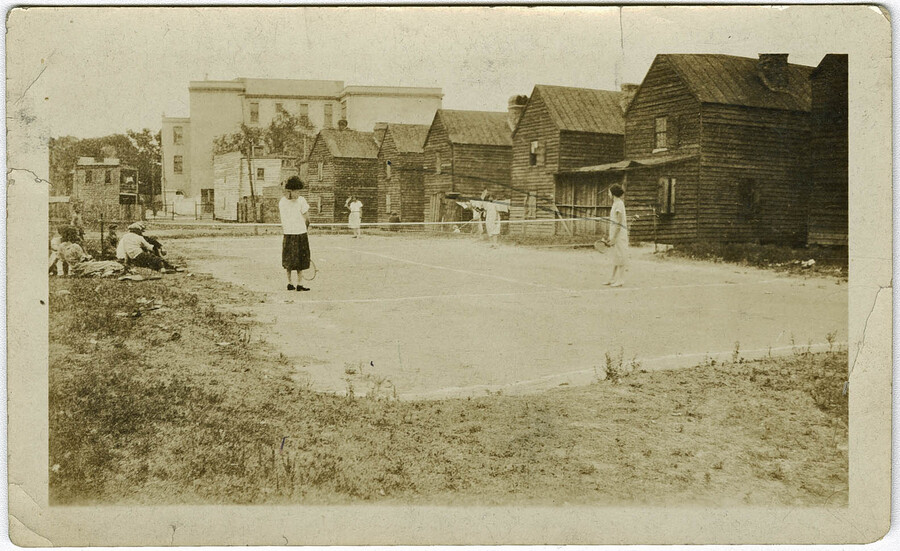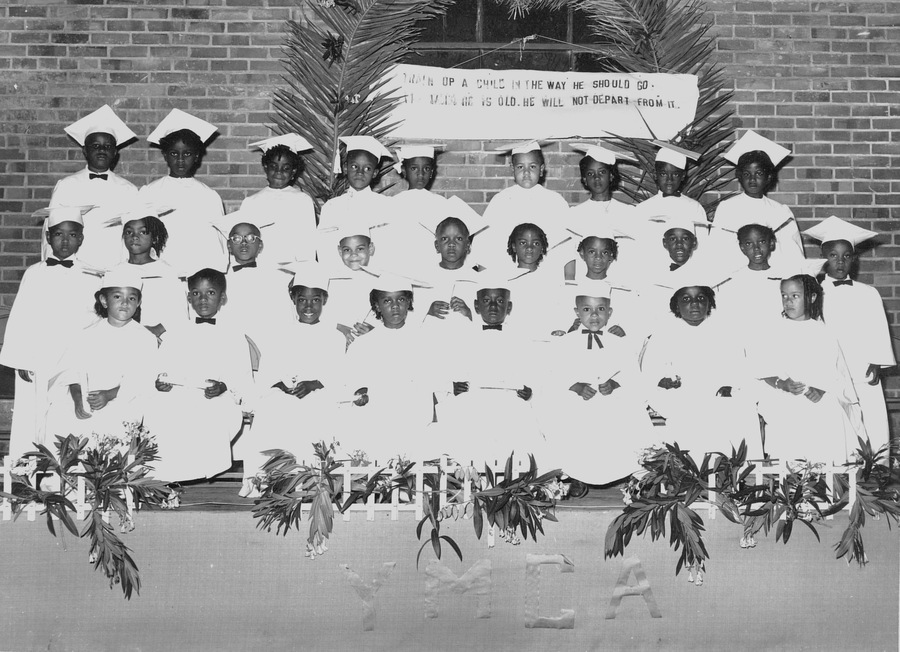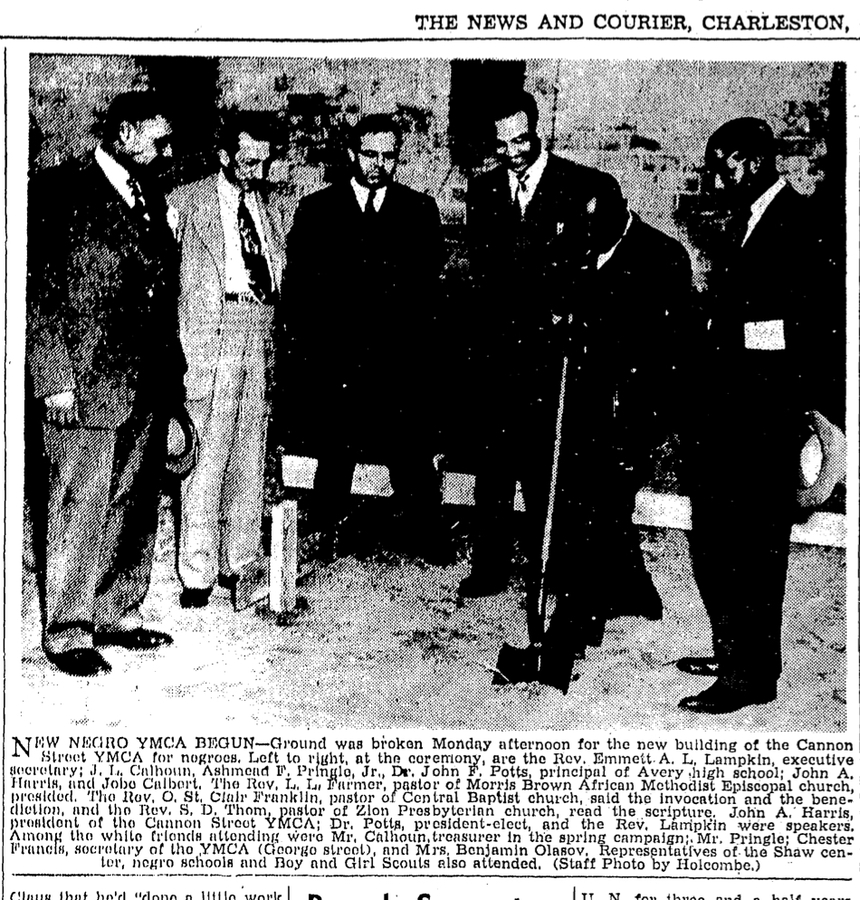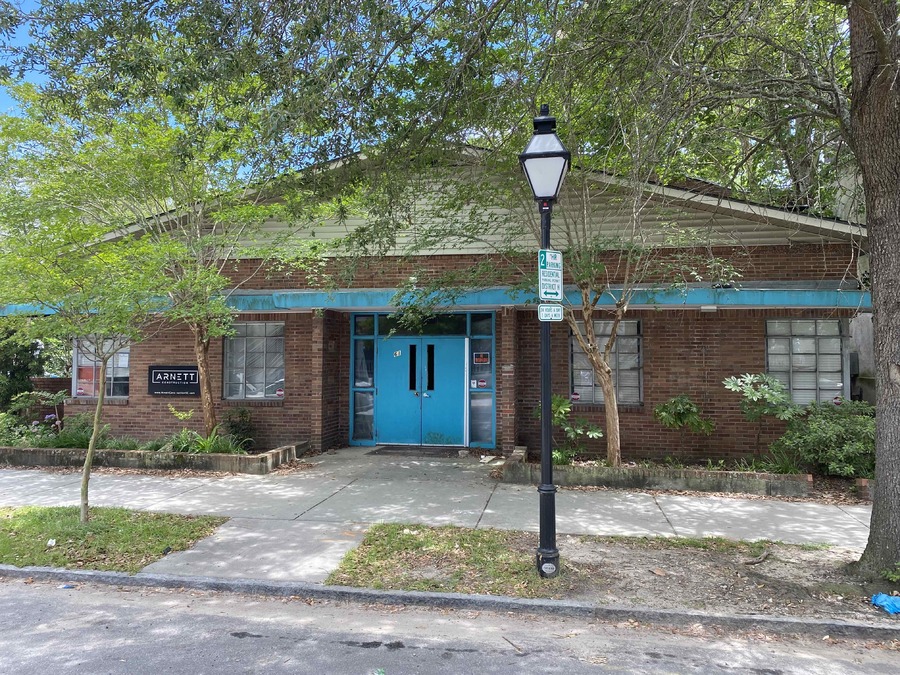Cannon Street YMCA (Young Men’s Christian Association), 61 Cannon Street

In Charleston, racist laws and social customs of the slavery and Jim Crow eras restricted Black Charlestonians’ access to public spaces within the city.
In Charleston, racist laws and social customs of the slavery and Jim Crow eras restricted Black Charlestonians’ access to public spaces within the city. This created many challenges for Black leaders, who aimed to organize their communities and improve their conditions. Black Charlestonians resisted the discriminatory social constraints imposed on them by struggling for agency over their bodies and communities, as well as gaining access to public spaces in the city. Shortly after the Civil War, Charleston’s Cannon Street YMCA became foundational to the social, political, and economic life of Black Charlestonians, providing a safe and public space for them to organize their communities.
During the Civil War, the national YMCA shrank to a third of its size. Many of its members marched off to war, while others supported the war effort by sending Bibles and other resources to soldiers. After the Civil War ended, there were only 59 YMCAs left in the United States, mostly located in the North. Four years after the war, the YMCA had expanded to almost 600 locations, including Charleston's historic Cannon Street YMCA.
Established in 1866 shortly after the Civil War, the Cannon Street YMCA is the oldest continuously operating YMCA developed for African Americans in the United States. Beginning as a heritage YMCA chartered for “colored boys,” Charleston’s vibrant Black community and its leadership shaped the Cannon Street YMCA into one of the most unique organizations in the Lowcountry—and the nation—providing resources for social uplift through community building, education, recreation, and other social programming.
In 1952, the Cannon Street YMCA became essential in training students and future leaders how to practice “citizenship and democracy.” Avery Normal Institute students organized student council elections, which consisted of over 350 students casting their votes using the YMCA’s voting machines. Avery seniors also organized a national convention; each homeroom was represented, and students elected delegates to send to the school-wide convention. These students used the practical experience they gained while attending Avery's programs at the Cannon Street YMCA to go door to door in their community and get out the vote during the 1952 presidential election.
In 1955, the Cannon Street YMCA Little League fielded a team of African American youth All-Stars. The Cannon Street All-Stars advanced to the state Little League tournament, but South Carolina's 61 all-white Little League teams withdrew from the state tournament in protest against playing a Black team. Because of the white teams' refusal to participate in the integrated tournament, the Cannon Street All-Stars won by default, but were effectively barred from further competition by the National League.
In response to integrated Little League baseball, an all-white Dixie Youth baseball league began in Charleston in 1955. In 1994, Augustus Holt brought the Little League back to Charleston and later became president, overseeing the sports program and organizing a celebration of the fortieth anniversary of the Cannon Street YMCA All-Stars baseball team.
Rising taxes and a higher cost of living have forced many Black residents to move to other areas over time. Now, Cannon Street is home to small restaurants, bed and breakfasts, and student housing, which are not reflective of the community’s historic makeup. These changing demographics in the Charleston area have contributed to the new challenges the Cannon Street YMCA faced. One such challenge includes a continuous lack of funding and a failing physical infrastructure, which makes generating income through the facility very difficult. These problems, coupled with an inability to physically expand, led the YMCA to close its doors on Cannon Street and move into a new facility in the Cane Bay area near Summerville. The property is currently being redeveloped into apartments.
Historically, generations of families enjoyed YMCA facilities on Cannon Street and participated in various activities there. Now the leadership is tasked with reengaging a community that still does not have access to resources due to disenfranchisement and historical racial divides.
Images



